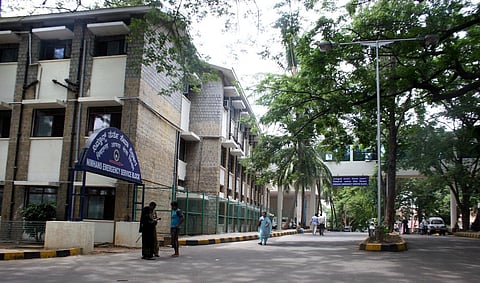

BENGALURU: The National Institute of Mental Health & Neuro Sciences (NIMHANS) in association with the Ministry of Health & Family Welfare will conduct the National Mental Health Survey (NMHS) – Phase 2 on urban mental health in six metros and two Tier-II cities in Karnataka from February 2022.
Director, NIMHANS, Prathima Murthy announced the survey while briefing the media on Friday. The survey will cover 3,600 sample populations each in Delhi, Mumbai, Bengaluru, Chennai, Hyderabad, Kolkata and Tier-II cities - Hubballi-Dharwad and Mysuru in Karnataka. The survey would look into the extent of mental health problems, access and systems that govern mental health care.
“The survey would also look at memory disturbances, behavioural addiction such as social media and gaming addiction, anxiety, children’s issues, their mental wellbeing and impact of Covid-19 on people,” said Murthy.
According to the National Mental Health Survey of India 2015-16, the prevalence of any mental morbidity at any given point in time was 13.1percent in urban metros, 9.3percent in urban non –metros, and 9.2percent in rural areas. “However, the COVID-19 pandemic with its disastrous effect across cities of India has brought to the forefront the mental health concerns/issues of city dwellers.
With the current rate of urbanization and with ample evidence that urbanization affects mental health, there is an immediate need to address mental health in cities of India,” said the Director, who was accompanied by the former head of Department of Epidemiology, Centre for Public Health, Dr Gururaj and Visiting Professor at NIMHANS, Dr Mohan Isaac.
The Department of Epidemiology, Centre for Public Health in collaboration with Community Psychiatry Unit and Tele-Medicine Centre, Department of Psychiatry, NIMHANS is also conducting a national level symposium on urban mental health – ‘Cities and Mental Health: COVID-19 Pandemic Unfolded mental health crisis in cities of India’ today.
On the occasion, NIMHANS, supported by BIOCON Foundation released BUMHI (Bengaluru Mental Health Initiative) module, which aims to provide individuals with adequate skills regarding mental health first-aid through the development and implementation of mental health self-care and informal care programmes in the community.
The knowledge and skillsets required for strengthening mental health self-care and informal care in the community, identified under the BUMHI project are self-knowledge, conscientiousness and spirituality, accountability, emotions, stress management, empathy, communication, assertiveness, goal setting, problem-solving and decision making, physical health, social support and balancing life, mental health awareness and psychological first-aid.
In his presentation, on how urban living affects mental health, Dr Gururaj stated how cities are associated with acute as well as prolonged exposure to stressor, which are closely linked to urban environment. These stressors influence brain functioning ranging from neuro developmental at foetal stage to structural and functional alterations throughout life in response to environmental exposures.
“Urban life influencers and stress builders include disintegration of traditional family structure, social isolation, work life balance, financial stress, work and housing insecurity and increased risk of substance abuse and addiction among youth,” he shared. “The extent to which India’s health system can provide for large and growing city-based population will determine the country's success in achieving universal health coverage and improve mental health indices,” added the noted epidemiologist.